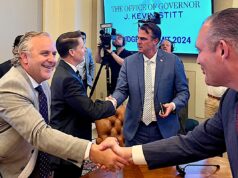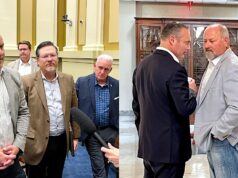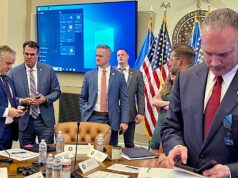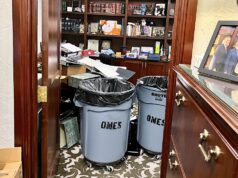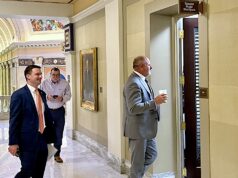
Much like the Constitutional Reserve Fund (aka the Rainy Day Fund), the Oklahoma Vision Fund would create a trust designed to protect state funding in bad times while adding benefit during good times.
Known as a budget-reserve fund, passage of SQ 800 would amend the Oklahoma Constitution in the following ways:
- Beginning July 1, 2020, 5 percent of the gross production tax (GPT) revenue from oil and gas activity would be directed into the Oklahoma Vision Fund.
- Each year thereafter, the amount of GPT revenue diverted into the fund would increase by 0.2 percent.
- After five years, a percentage of the Oklahoma Vision Fund would be invested in the General Revenue Fund.
- SQ 800 would allow the state to own stock, which is currently prohibited in the state constitution.
- The State Treasurer’s Office would be in control of managing and overseeing the fund.
For a sense of the Oklahoma Vision Fund’s potential scale, consider that GPT collections during the 2017 fiscal year would have generated $20.5 million for the new funding mechanism, as reported by Oklahoma Policy Institute. GPT is considered a volatile source of tax revenue owing to fluctuations in the prices of oil and gas.
Full text of SQ 800 is embedded at the end of this post.
Proponents: This program makes dollars and sense
On Oct. 24, The Oklahoman published an editorial in support of SQ 800, taking the position that, despite some potential problems down the road, “… the idea behind the fund is valid, and the state clearly cannot continue down the path it has traveled in recent years when it comes to budgets and spending.” In a nutshell, their take is that something is better than nothing, because the budgeting status quo has clearly had problems.
State Chamber of Commerce President and CEO Fred Morgan also supported SQ 800 in an Oct. 12 commentary in The Journal Record. Morgan points out that other oil and gas-reliant states have similar budget programs.
Opponents: This program threatens education funding
Shawn Hime, director of the Oklahoma State School Boards Association, has decried SQ 800 on the OSSBA website and on NewsOK.com. On the former, Hime calls the measure “vague” and “filled with unknowns,” claiming:
Since schools currently receive about 10 percent of GPT collections as dedicated revenue, [SQ 800] will result in reduced funding for schools without a guarantee that the lost revenue would be offset.
The Journal Record’s editorial staff agrees with Hime, and an Oct. 8 editorial called SQ 800 “… unnecessary, redundant and paradoxical to the immediate needs of state government and public education,” citing the the state’s current Rainy Day and Revenue Stabilization funds as sufficient.
A poll from SoonerPoll.com published Tuesday by Tulsa’s News on 6 shows voters as virtually tied on the issue.
https://www.sos.ok.gov/documents/questions/800.pdf” download=”all”]








